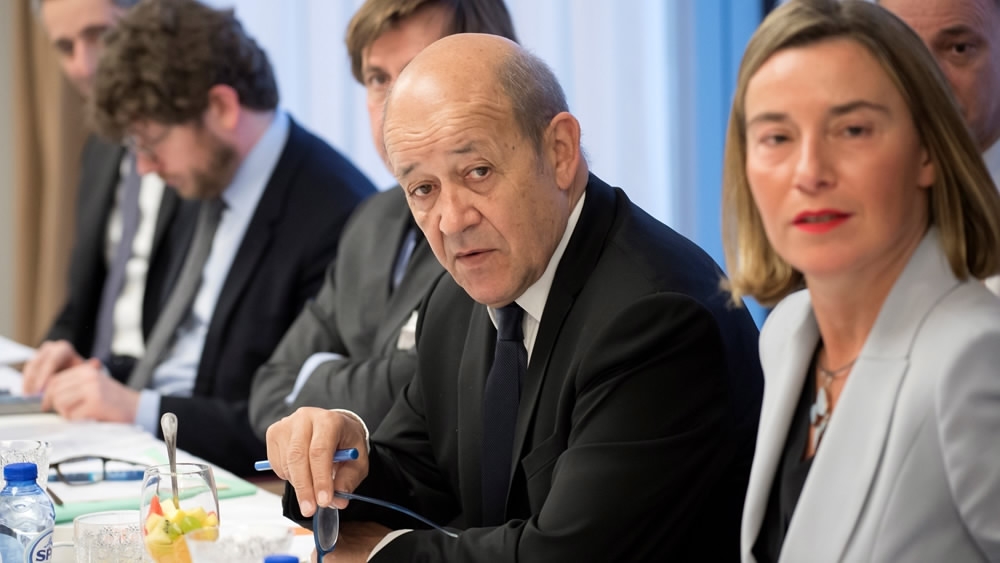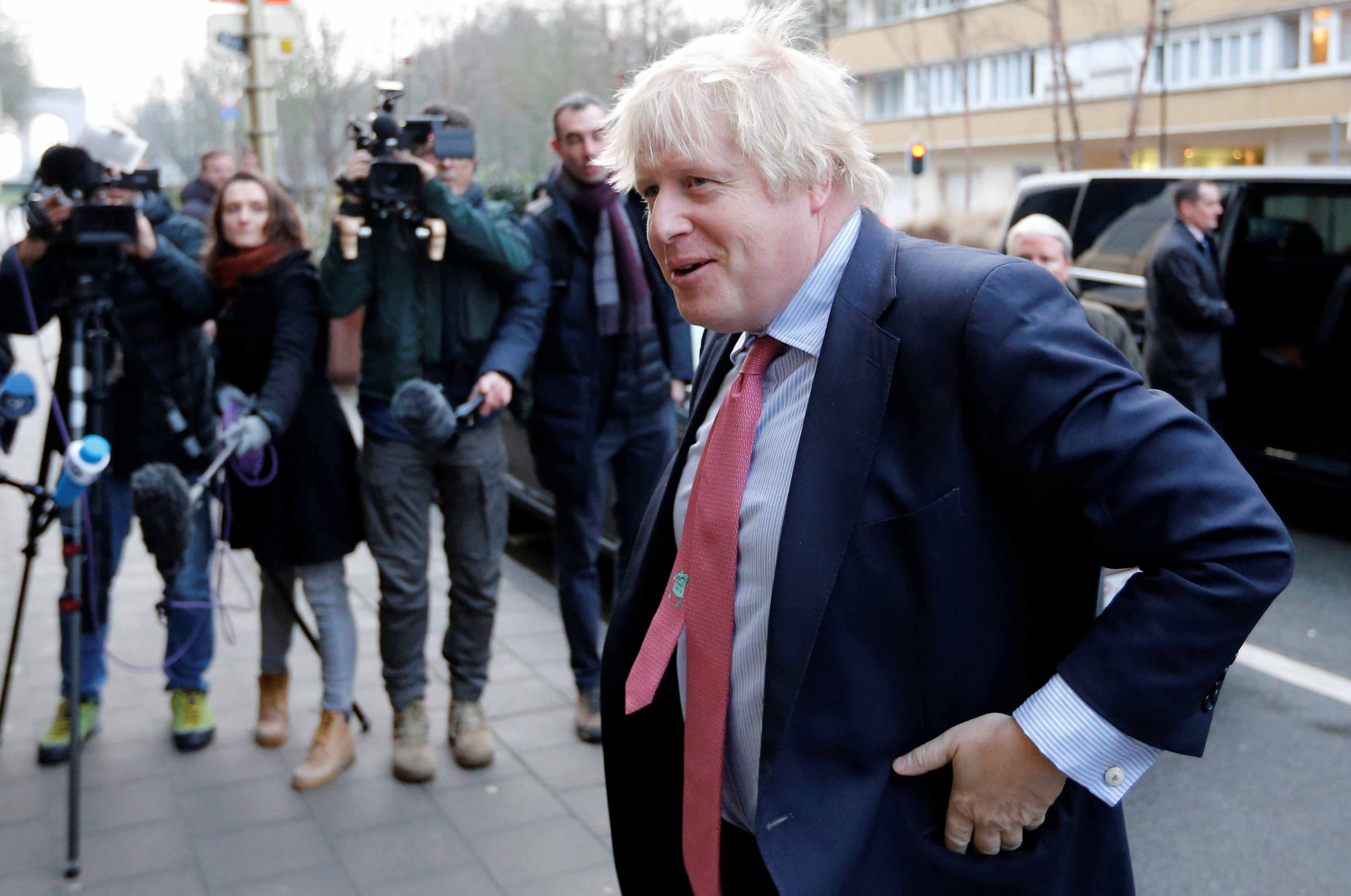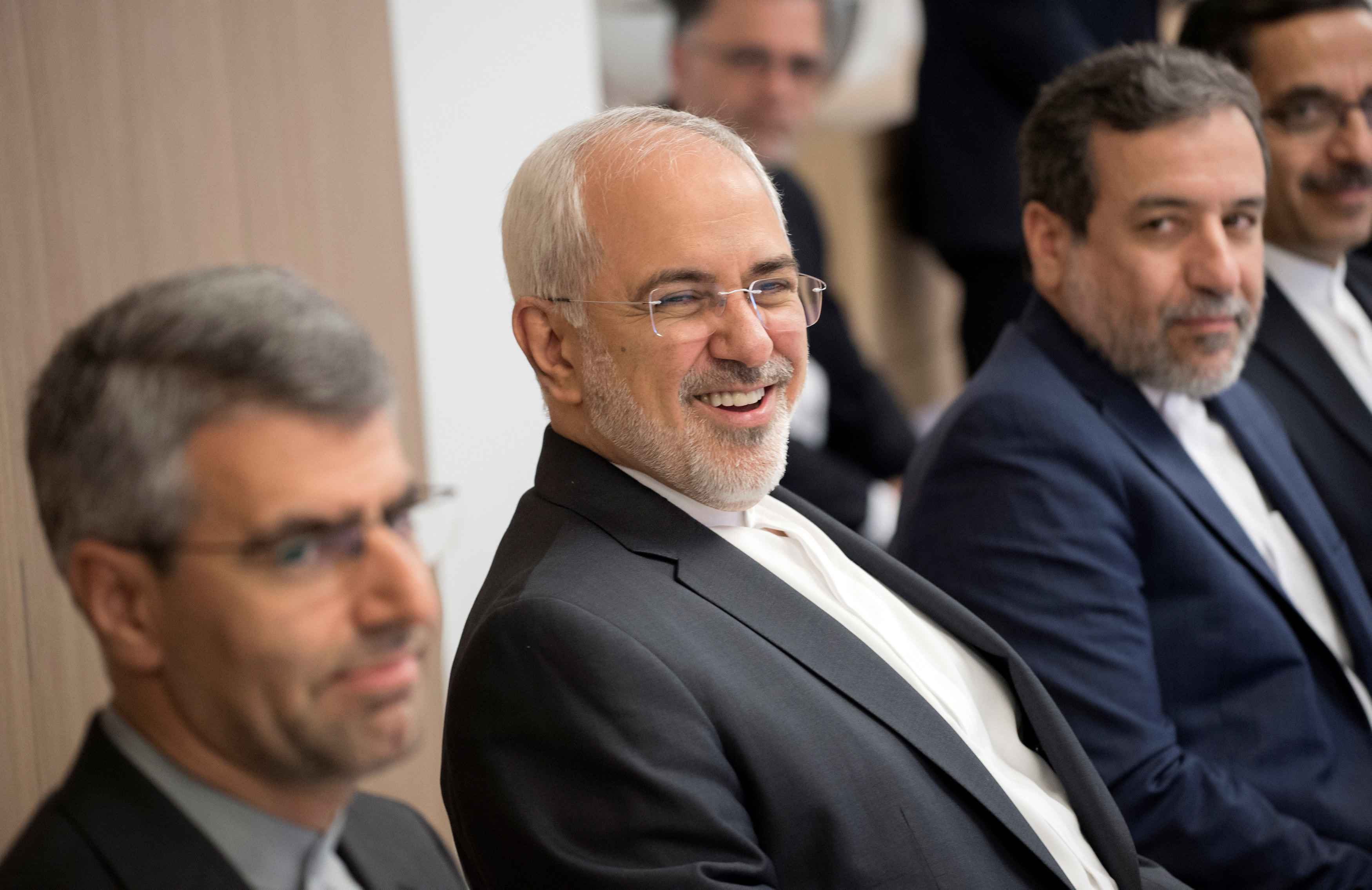
Politics
19:18, 11-Jan-2018
Europe and Iran to back nuclear deal as Trump decision looms
CGTN

Europe and Iran are to put on a united front in support of the landmark 2015 nuclear deal at talks in Brussels Thursday, as Washington mulls reimposing sanctions on Tehran.
The European Union (EU) and the foreign ministers of Britain, Germany and France will unite to defend the accord, which curbed Iran's nuclear ambitions in return for the relaxing of punishing sanctions but which US President Donald Trump has repeatedly criticized and threatened to leave.
While EU diplomatic chief Federica Mogherini wants to keep the nuclear issue separate from other contentious issues with Tehran, Iranian Foreign Minister Mohammad Javad Zarif will also face tough questions about recent anti-government protests which left 21 people dead.
Trump, who in October refused to certify Iran was complying with the deal but stopped short of withdrawing from it, is expected to decide on Friday whether to extend waivers on nuclear-related sanctions against Tehran.
The EU and other world powers have repeatedly warned it would be a mistake to abandon the deal, thrashed out with Iran over 12 years by the US, Britain, France, China, Germany and Russia.

Britain's Foreign Secretary Boris Johnson arrives for a meeting with European Union's foreign policy chief Federica Mogherini, Iran's Foreign Minister Mohammad Javad Zarif, German Foreign Minister Sigmar Gabriel and French counterpart Jean-Yves Le Drian (unseen) in Brussels, Belgium, Jan. 11, 2018. / Reuters Photo
Britain's Foreign Secretary Boris Johnson arrives for a meeting with European Union's foreign policy chief Federica Mogherini, Iran's Foreign Minister Mohammad Javad Zarif, German Foreign Minister Sigmar Gabriel and French counterpart Jean-Yves Le Drian (unseen) in Brussels, Belgium, Jan. 11, 2018. / Reuters Photo
British foreign minister Boris Johnson called the deal "a crucial agreement that makes the world safer".
"It is vital that we continue to work with our European partners to preserve the Iran deal, and with it the security and prosperity it is bringing to the people of Iran and the world," he said.
His German counterpart Sigmar Gabriel agreed, saying the deal had "fenced in an acute crisis" and was now "a central part of our security" for Europeans.
According to two US sources, Trump had not made a decision by Wednesday, while Johnson told the British parliament on Tuesday that London was urging "our friends in the White House not to throw it away".
Iran, which on Monday warned the world to get ready for Washington abandoning the deal, has said if the US walks away from the agreement it is ready to give an "appropriate and heavy response".

Iran's Foreign Minister Mohammad Javad Zarif attends a meeting with European Union's foreign policy chief Federica Mogherini, Britain's Foreign Secretary Boris Johnson, Germany's Foreign Minister Sigmar Gabriel and France's Foreign Minister Jean-Yves Le Drian in Brussels, Belgium, Jan. 11, 2018. / Reuters Photo
Iran's Foreign Minister Mohammad Javad Zarif attends a meeting with European Union's foreign policy chief Federica Mogherini, Britain's Foreign Secretary Boris Johnson, Germany's Foreign Minister Sigmar Gabriel and France's Foreign Minister Jean-Yves Le Drian in Brussels, Belgium, Jan. 11, 2018. / Reuters Photo
Zarif, who traveled to Moscow on Wednesday to seek Russian support, criticized what he called Washington's "destructive policy".
"The United States must understand the unity of the international community over the nuclear deal and change their position as a result," Zarif said, urging world powers to "resist the hostile actions" of the Trump administration.
The International Atomic Energy Agency (IAEA) has repeatedly said Iran is keeping up its side of the agreement, most recently in November.
After talks in Moscow on Wednesday, Zarif tweeted a warning.
"Everyone agrees it is imperative that ALL live up to their obligations under JCPOA. IAEA has verified Iran's full compliance, but continuation will depend on full US compliance," he wrote.
Source(s): AFP

SITEMAP
Copyright © 2018 CGTN. Beijing ICP prepared NO.16065310-3
Copyright © 2018 CGTN. Beijing ICP prepared NO.16065310-3